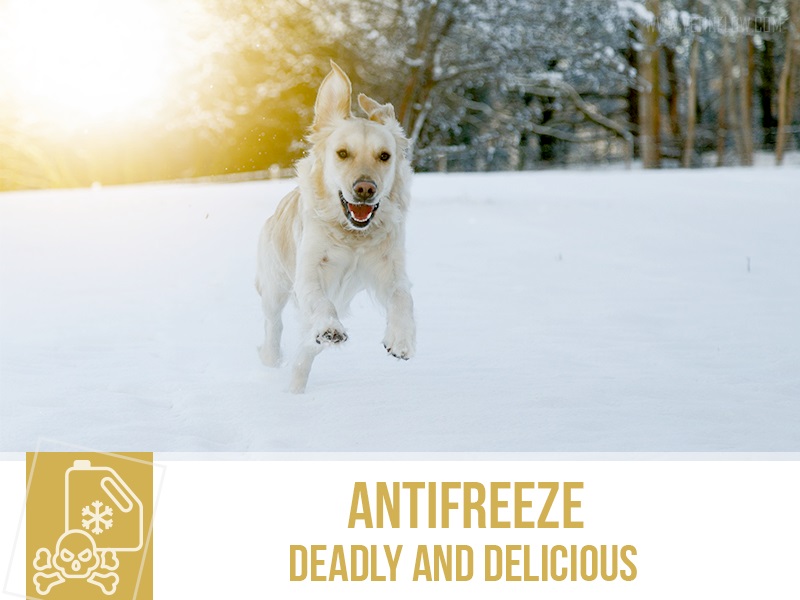Cold winter days have already arrived and, soon enough, antifreeze, which has been lying about in garages and homes will be back in use.
This means that there will be a much higher chance of our pets contacting it, either through spills or because your furry friend decided to investigate it closer, so we would like to remind pet owners to be very careful with how to handle and use it.
Antifreeze is made up of ethylene glycol, a fairly non-toxic compound that drastically lowers the freezing point of water and is tremendously useful in many places but especially in car engines. However, the biggest problem is when it is ingested this compound breaks down in the body, causes severe metabolic acidosis and reacts with calcium to create crystals that accumulate in the kidney, damaging it severely.
Unfortunately, antifreeze has a sweet taste, so this means that, if your dog finds it, they might actively ingest it or might even try to seek it out.
If you suspect your pup has ingested antifreeze, you need to take immediate action and take them to the vet! Only very small quantities are needed to cause extensive damage, but chances of a good recovery improve the sooner they are seen.
What can you expect if your pet has ingested antifreeze? Difficulty walking correctly, stupor, vomiting and lethargy followed by an apparent recovery around 12 to 24 hours later. However, about 2 to 3 days later kidney failure will set in with severe depression, coma, seizures and eventually, death.
Keep your pets away from this dangerous compound by keeping packages well out of reach and quickly cleaning any leaks or spills that might occur.
Would you like to know more about dogs? Check our Canine Courses:
![]()
Canine courses

